Exclusive Interview: Charley and Vlas Parlapanides on Brutality, Betrayal, and Bombshell Revelations in ‘Blood of Zeus’ Season Two
Netflix has entered a renaissance period when it comes to their adult animated series and Powerhouse Animation Studios has been at the forefront of many of these productions, such as Castlevania, Seis Manos, and Skull Island. That being said, Blood of Zeus — a radical reimagining of Greek mythology and its pantheon of Gods — has proven to be one of the streaming service’s most memorable offerings. Blood of Zeus impressed audiences in its first season, but its sophomore year is bigger and better in every regard. Blood of Zeus pushes its characters and universe to complicated places that enrich the series in rewarding and thought-provoking ways. Season two intensifies the brewing conflict between Heron and Seraphim, two brothers who have found themselves on very different paths, while a power struggle to rule Olympus throws the Gods and demons into unprecedented chaos. It’s electric storytelling that’s right up there with any of the best live-action fantasy series.
Charley and Vlas Parlapanides, Blood of Zeus’ creators and writers, get candid about season two’s power shift, whether Seraphim is really a villain, a cut chariot race, their dream project about Medusa, and what lies ahead for season three and beyond.
Daniel Kurland: Blood of Zeus’ first season is such an accomplishment, but what did you want to say with these new episodes? Second seasons can be such an exciting period of transition for series and stories. What would you say were some of the major influences on Blood of Zeus’ second season?
Charley Parlapanides: I think books like Gates of Fire by Steven Pressfield and Circe by Madeline Miller are big influences on Season 2, in the sense that they both inspired us to keep working in this space. Obviously, Gates of Fire is based on historical events and Circe is based on mythology but they are both such incredible works that we couldn’t wait to jump back into this sandbox. We are proud, in some small way, to be a part of this renaissance of ancient Greek and mythological storytelling. In terms of movies, I would say films like Star Wars, Indiana Jones, Flash Gordon and even Braveheart are huge influences on both of us and Season 2. We just love that type of escapist storytelling. They are entertaining, from the first frame to the very last frame. Plus, we grew up during what we call the Amblin age of filming and we feel that colors everything we do.
Vlas Parlapanides: I agree. We are huge Steven Spielberg fans. He was a master of moving the audience emotionally. And moving the audience emotionally is something we always strive to do. But I would also add that we want to do that in a way that has emotional truth and is earned and grounded. We try to bring the sense of realism the Italian New Wave Films had to every project we work on. We love films like The Bicycle Thief and Rocco & His Brothers. Those films moved us emotionally while also imbuing a sense of realism. They were also about families and about the interpersonal relationships between brothers which is a big part of Season 2 of Blood of Zeus. I would also say that Martin Scorsese and Francis Ford Coppola influenced us. They depict worlds that have that realism in them and are at times very violent. But the beauty of their films is that the violence is never gratuitous. It’s a realistic depiction of the world the characters inhabit. And, of course, their most famous films center on families – and brothers – as well! Lastly, George Martin. We are huge fans of the Game of Thrones novels and show!
Daniel Kurland: You’ve previously mentioned that you have a five-year plan for Blood of Zeus. How much did your blueprint for season two deviate from what you initially had in mind for the season’s arc?
Charley Parlapanides: Truthfully, we stuck pretty close to the document we wrote back in the summer of 2020. There were four basic story elements in that outline that never changed. For example, we knew we wanted to open episode 201 with the War for Olympus, which was the last episode of Season 1 but see it from another perspective. We thought that would be a fun way to introduce the Hades and Persephone’s storyline and how various characters would be vying for the throne. We also knew we wanted to do our version of the Hades and Persephone story, in particular how they came to be a couple, with an emphasis on the fact that they would be the antithesis of Zeus and Hera; whose relationship was utterly toxic. We wanted them to feel more like the Underwoods in the first season of House of Cards, where they worked and plotted together. We also knew that the spine of the story would hang on Heron and Seraphim, crossing paths and then colliding again. That was something our executive at Netflix, Brandon Mattingly, said to us once and it always stayed with us. Lastly, we knew we also wanted to see Zeus’ trial and how the realms of the world were divided. That was something we had read about in an ancient text and we liked the idea of Hades feeling cheated by it all.
Vlas Parlapanides: Totally agree that we stuck pretty close to the document on a macro story beat level. However, we did deviate occasionally on the micro story beat level. For example, Seraphim escaping from the Underworld was something we initially thought we were going to do. It was going to be a Prison Break type episode but we ended up scratching that idea. We also never had the Funeral Games in that initial document. When we did our research, we came across that ancient Greek tradition and thought it would be fun to include that in the show. And while we always knew that we were going to open on the War for Olympus and see it from a different perspective, we didn’t open with Persephone and Hades in that document. We’re so glad that we changed that. It helps to open the show with them. It really helps set the table, as they say.
We also, believe it or not, didn’t spend time with Heron and Gang until the very end of episode 201 in that initial document. We ended up changing that as well and introduced Heron and Gang much sooner and spent more time with them in episode 201 than we initially planned. We also slowed down the story quite a bit from that initial document. For instance, Zeus’ funeral was pushed back to episode 204 so that we could spend time really getting to know Hades and Persephone while also delving into Seraphim and Heron’s storylines. Pushing the funeral back was initially a concern but it ended up working beautifully.
Daniel Kurland: Was it difficult to figure out this season’s designs when it comes to the many new demons that are on display and the Giants’ development?
Charley Parlapanides: I think that Katie Silva, who led our character design team, and Jessie Pyles, who led our backgrounds design team, did such an amazing job in Season 1 that it established a creative template for the show going forward. Yes, there were challenges in Season 2 but I think their amazing work in Season 1 set the bar for us, so we could always lean on that aesthetic. Truthfully, the first season was much more challenging because we had to figure out what all of these characters and worlds would look like in this version of Greek Mythology. But Jessie said something back then that has been a north star for us, which is that we should start with something realistic to that period and then fantasize it. And that mantra has guided us ever since.
Vlas Parlapanides: Totally agree with Charley.
Daniel Kurland: What were some of the challenges of blocking out and planning the series’ fight sequences when these characters have such tremendous powers and feel like they can conceivably do everything. How difficult is it to rein things in or figure out a plan for fight sequences? Does it ever change much from the script-writing stage to what actually ends up on the screen?
Vlas Parlapanides: The first question is something the episodic directors and supervising director, Jae Kim, have to figure out. It’s their job to make sure the blocking makes sense and that the audience is oriented. Regarding how difficult it is to rein things in or figure out a plan for a fight sequence, that varies. Oftentimes, it is a discussion between the directors. Sometimes they have Charley and I weigh in. Once it’s boarded, it becomes evident what is working and what is not. And that helps inform what makes it into the show. The best action in our opinion, is action that is an extension of the characters. Charley and I try to always hammer that home. If the audience is not rooting for or cares for the characters, no matter how cool the action is, it will fall flat. So we are always cognizant of that.
And I must say that Charley and I do take pride in writing cool, fun action sequences. We always try to be as imaginative as we can be and try to make the most of the world our characters are inhabiting. And then it’s up to the directors to bring those sequences to life. We love it when they come back to us with ideas for how to do things or come up with something we had not thought of. So, to answer the last question, sometimes the action deviates from what was originally written if the directors have good ideas and want to try something different from what’s written. If not, it then stays close to what’s written on the page. It varies from sequence to sequence.
Charley Parlapanides: That’s also one of the most exciting aspects of working in animation. It’s not like live action. There is no set, no actors, no props, no location. There are no fight coordinators or stunt men. It’s just a blank page and the artists. And then it’s up to them and the directors to take what we wrote and build it from the ground up. But everything is possible in that moment. You can try and do the Bayhem version or a low key, slow motion version. It’s all up for grabs. But like Vlas said, in the boards, the truth is revealed. You know right away what is working and what isn’t.
Daniel Kurland: Can you talk a little on the expanded role that Seraphim receives this season and how he often feels like just as much of a protagonist as Heron? Did you intentionally want to blur those lines between protagonist and antagonist a little more this season?
Vlas Parlapanides: Regarding Seraphim feeling like a protagonist as much as Heron, that was by design. And so was blurring his lines between protagonist and antagonist. In fact, we are so happy that you picked up on that. The intention was always to do that for Seraphim and in fact the plan going forward is to lean into that even more. It sets up what we hope to do with the character going forward and in — God willing — future seasons. We don’t want to spoil anything here but Seraphim will be a major character going forward and we have a very cool character arc mapped out for him. It’s tragic, cool and redemptive.
Charley Parlapanides: Yeah, we always say that our job as writers is to try and make it so that we don’t have a villain. To us that term means there’s a black hat bad guy versus a white hat hero. We all know how that story ends after a hundred years of movies and tv shows. Our goal is to have protagonists and antagonists. Hopefully, the audience understands why everyone is doing what they are doing. In our minds, then you can root for or at the very least relate to everyone in the story and the drama is created by the tension and conflict between everyone; and how it gets resolved, in the end. That might sound a little heady for a cartoon about Greek mythology but that’s the approach we try to take.
Daniel Kurland: This season also further expands the boundaries of Blood of Zeus’ universe and features many new locations, including a deeper look into the Underworld. Was it a challenge to develop these new arenas and figure out their right look and tone?
Charley Parlapanides: That was fun, more so than a challenge. It’s also when you appreciate the vast abundance of the world of Greek mythology. Their stories and worlds are so rich. It also helps that in animation you can afford to explore the various nooks and crannies of this world.
Vlas Parlapanides: I agree with Charley, it’s always fun to bring these locations to life. The Greek mythological tales were so creative and spellbinding. They created images in our minds when we first heard them. They moved us emotionally. So, we try to have the team create images that elicit the same emotional responses in us that we had when we were kids. Something that captivates. Something that’s engaging. Something that’s heavenly. Beautiful. Chilling. Serene. Terrifying. Again, once you see it, it should immediately elicit an emotional response.
Daniel Kurland: The season’s fourth episode, “Funeral Games,” is one of my favorite from the season. It’s such a beautiful and brutal story that obviously pulls from a real tradition from ancient civilization. Can you talk about that episode’s development and pulling it together?
Charley Parlapanides: That was inspired by a passage Vlas found in the Iliad where Achilles proclaims that funeral games will be held in honor of his dead friend, Patroclus. They then talk about how contests in chariot racing, boxing, wrestling, running, dueling, discus throwing, archery, and javelin throwing ensue, and valuable prizes are awarded. That’s exactly what we tried to replicate in episode 204, although we had to cut the chariot race, due to time constraints. But we snuck the preliminary boards of it into the end credits. And the gloves they use during the boxing match were inspired by the famous Greek statue: “Boxer At Rest.”
Vlas Parlapanides: The other cool thing about the Funeral Games episode was that the “winner” of the games was awarded Zeus’ ring. And the ring was imbued with a clue that would help the ringbearer take a step towards claiming Zeus’ throne if the ringbearer was clever enough to figure it out. That was a note that was given to us, so we can’t take credit for that. We loved that note because it gave the games stakes, in addition to them being a tradition that was practiced by the ancient Greeks to honor the fallen.
Daniel Kurland: This season builds to an exciting conclusion over who will take over Olympus’ throne. Did you consider any other options for who may receive this honor or did you always kind of know who would become Olympus’ new ruler?
Vlas Parlapanides: We went back and forth as to who should be the new ruler. And to be honest, I think it’s still rather open-ended. Many have legitimate claims to Zeus’ throne. Who eventually will sit atop the throne and stay in power – that’s the key – remains to be seen. We have an idea of who that may be but don’t want to spoil anything. Speaking of the ending, Gaia’s speech of forgiveness is my favorite thing in the show and of anything we’ve written. Charley wrote that. I absolutely love it and believe it could not be more timely. I am excited to share that with the world because I believe we can all use more forgiveness in our lives, me first and foremost.
Charley Parlapanides: Also, a lot of this is colored by the fact that our initial idea for the five season arc of Blood of Zeus is for it to be an ‘End Times’ story. Greek mythology doesn’t really have an Armageddon story or a Ragnarok story, like in Norse mythology, where the world is 5 completely destroyed. Funny enough Hesiod, in his discussion of the five ages, alludes to the end of mankind in the Iron Age. But it’s not the end of the world or the gods. So, part of us thought that it would be cool to create this new myth that explains what happened to the gods and why they don’t exist anymore. So, without getting into potential future spoilers, that did affect who we considered coming out on top for Season 2.
Daniel Kurland: The animation on this series is still so staggeringly beautiful, but are there any particular fight sequences or complicated scenes that you’re especially proud of in terms of how they turned out? I thought that the Keres swarm battle in the dark was particularly inspired.
Charley Parlapanides: Yeah, that Keres swarm is a very cool sequence. That is one of those sequences that when you write it, your mind instantly jumps forward, wondering how they will bring it to life and animate it. That said, we have to give some special credit to our episodic director, Josh Covey, who directed that episode. In the end, he ended up boarding that sequence himself. But to answer your question more specifically, it’s a sequence that didn’t even make it into the show that stands out to me but not for the reasons you might think. Season 2 was slightly different from Season 1 in terms of production. By that I mean, preproduction and the boards were all handled overseas, in South Korea instead of here in LA, which is what we did for Season 1. So, there was definitely a learning curve at the start of Season 2 with our overseas studio.
In episode 202 there was an awesome sequence we wrote where you see the Olympians battle Typhon in a flashback. We felt what we wrote was super cool and would make for a killer sequence a la the Olympians fighting in the Giants in the pilot of Blood of Zeus. But the overseas studio really struggled with it, especially the scale of it and the style of the show, in general. So, in the end, we decided to take the Jaws approach and not show the fight or reveal the shark, with the hopes that it would make Typhon more mythic. Initially, the idea was that the Olympians, united and working together, could just barely manage to curtail the beast; so how can they possibly fight it divided at the end of Season 2? But I’m grateful we ended up not showing that sequence. It makes for better storytelling!
Vlas Parlapanides: I totally agree! Not showing that sequence was a blessing in disguise. If we showed the gods defeating Typhon, it would have diminished Typhon a bit, even if the fight sequence was super cool. Not showing that fight and taking the Jaws approach, and I would say the Alien approach that Ridley Scott took for the first Alien movie, was definitely the way to go. Ridley teased the Xenomorph. He didn’t show it in its entirety from jump street. He slow-played it. He showed it in bits and pieces and let the audience use their imagination, which made the alien scarier and more mythic.
Daniel Kurland: Netflix has become increasingly interested in cutting edge video game adaptations with series like Cyberpunk: Edgerunners, Dragon’s Dogma, Arcane, and Onimusha. Powerhouse Studios specifically has the Castlevania series and the upcoming Lara Croft: Tomb Raider animated series on the way. Are there any video game properties — or really any IP — that you’d be interested in turning into an animated series?
Charley Parlapanides: That’s a great question. Truthfully, we look at IP as existing in two distinct buckets. There’s public IP, meaning stuff in the public domain, which includes the mythology that Blood of Zeus is based on. And then there are all the other great IPs that’s out there. In 6 terms of public domain, we have an awesome idea for a Medusa animated show. We would do almost anything to make that show a reality. We hope if Season 2 of Blood of Zeus does well, we’ll get a chance to tell our Medusa story. In terms of established IP, one of our absolute dream projects would be to do Conan the Barbarian as an animated show, using the original Robert E. Howard short stories. Those stories are absolutely golden if you love good, pulpy fantasy stories. You can see how they’ve influenced everyone that’s come after him.
Truthfully, we spoke to the rights holders and wrote a pilot for them on spec. We are very, very proud of that script. We will see what happens with that because we’ve heard there are some other people circling that property, including a director that has far more clout than us. That’s why some people say our business is, “like high school but with money.” But that is a dream project for us. We also think that the movie Beastmaster could make for an incredible animated show and we’ve talked to our friend Zack Stentz (Thor, X-Men: First Class) about how fun it would be to adapt that.
Vlas Parlapanides: I agree with everything Charley said. We hope that everyone tunes in to watch Season 2 of Blood of Zeus because, as Charley mentioned, if we get enough viewers, Netflix will greenlight our Medusa show. And trust me when I tell you – it’s epic. Medusa is one of the most iconic Greek mythological figures and we have a very cool way into her story. It’s a unique perspective, filled with adventure, romance, action, horror and drama .
Daniel Kurland: Blood of Zeus explores some really layered themes throughout this season, but what do you hope is the major message that audiences take away from these new episodes?
Vlas Parlapanides: This season we explored the themes of betrayal, love, redemption, and forgiveness. And in doing so, we hope the audience will empathize with Hades. Hades believes that he’s been betrayed by those that he loves. He has a legitimate beef with Zeus and Hera. And on top of that, he wants to put an end to the suffering his family endures when Persephone must leave them and the family is torn apart. Imagine what it would be like to endure what Hades endures year after year – for eternity. Everything Hades does, he does for his family. He goes to great lengths to protect them. We like to believe that we all would go to great lengths to protect our families too. The questions we must ask ourselves are: “How far would we go?” “What would we be willing to sacrifice?” “How far is too far?” While this all applies to Hades, it also applies to Seraphim. He finds himself in a similar situation with the priestess. Everything he does, he does so that he can put an end to her suffering. And by doing so, he too can undo a wrong. One that he’s committed. And maybe by doing that, he can also find some redemption.
Redemption also applies to Heron. He feels guilty about the time he let his anger get the best of him and he tossed away the sword Zeus made for him. If he had that sword, and I don’t want to give away too much here, the course of history would have been very different. There would not have been a war in Olympus and Zeus would still be alive. Heron hopes that he can undue that wrong by making the most of the time he has left, by doing good and dying well. We feel that we all have at times acted in ways we wish we had not and we all try to make up for our wrongs as best we can. So we believe these themes are relatable. Lastly, we just want to talk about the theme of forgiveness. Everything in the series culminates to that theme and how important it is for all of us to be able to forgive one another. The gods’ very survival depends on whether or not they can grasp that concept and live by it. If they cannot, they’ll destroy each other. If they can, they’ll finally find peace.
Charley Parlapanides: I agree with all of that and just hope that people are entertained by the show. Now, more than ever I find myself just wanting to escape. Tell me a good story, that’s all I ask. I hope people feel that way about Season 2 of Blood of Zeus.
Daniel Kurland: Lastly, what are some other animated shows that have recently gotten you excited? Scavengers Reign and X-Men ‘97 have been such unique revelations, in my opinion.
Charley Parlapanides: X-Men ‘97 has been an absolute joy. Every week I look forward to that show. It’s so good on its own terms but then it also brings with it this warm blanket of nostalgia. I wish they made 50 episodes of that show and that I could watch each week. That’s been amazing. I also loved Blue Eye Samurai. The story telling in that show is next level and was one of the ten best shows of the year for me, in either the animated or live action space. And I really dug Scavengers Reign. So happy for the Titmouse team and Chris [Prynoski]. They killed it with that show and I especially love the look and aesthetic they created for it. In my opinion, all of these shows keep raising the bar for the entire industry, which is just awesome. Also, with animation I often rewatch the same shows, over and over again. And lately that’s been Space Battleship Yamato 2199. That’s the best remake I think I’ve ever seen. It’s so damn good.
Vlas Parlapanides: I agree with all of the above!
‘Blood of Zeus’ season two is now streaming on Netflix

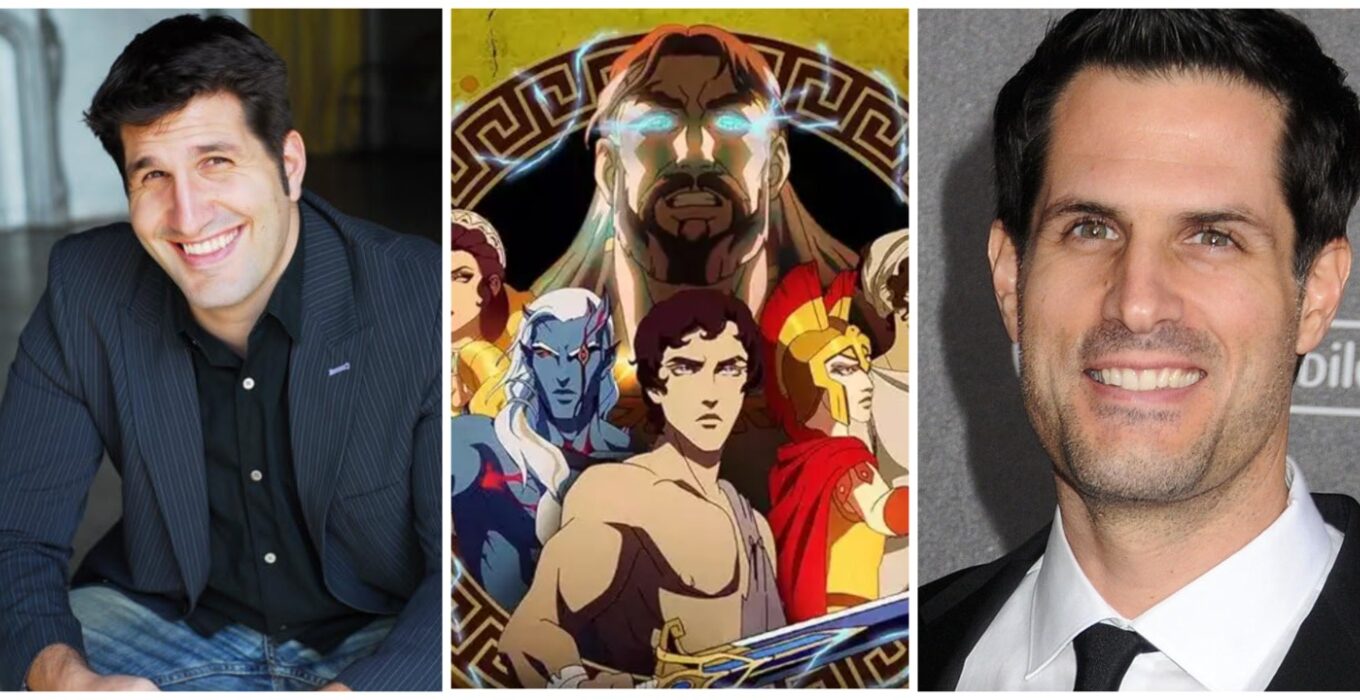
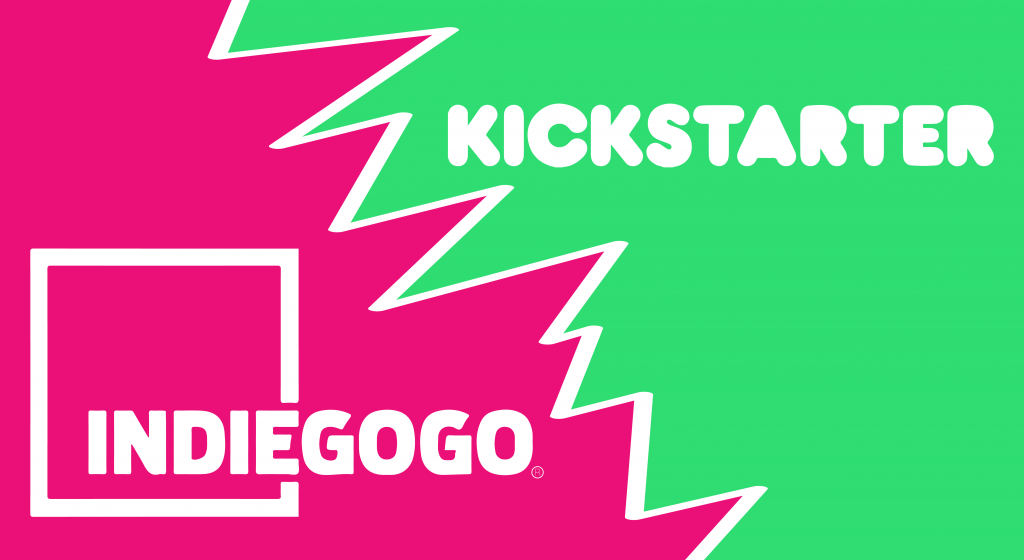
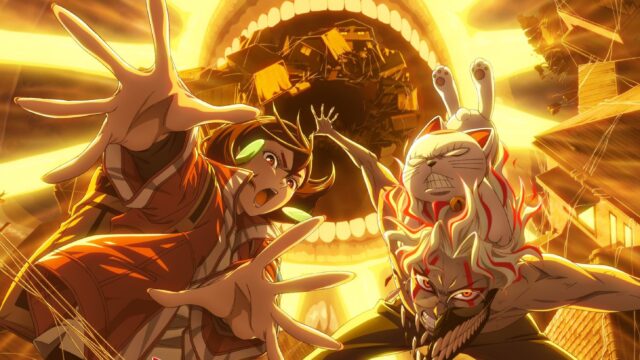
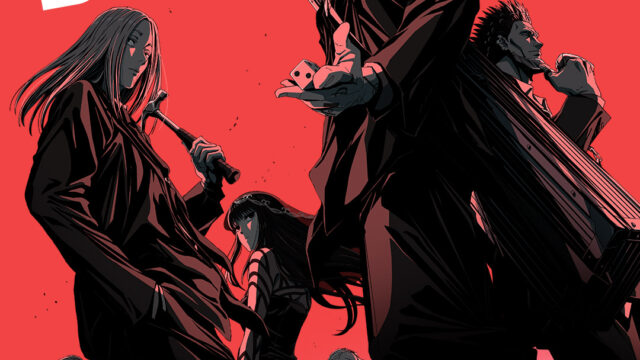





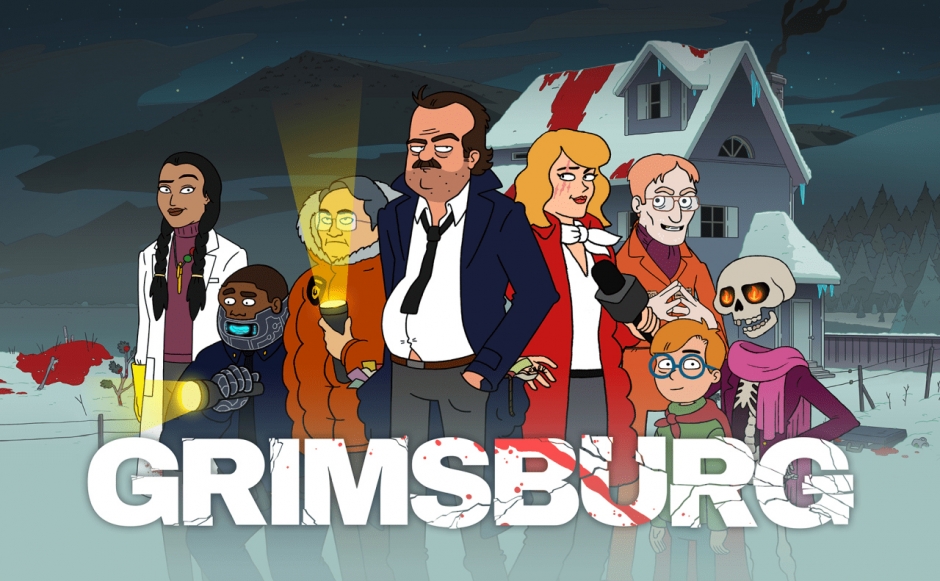












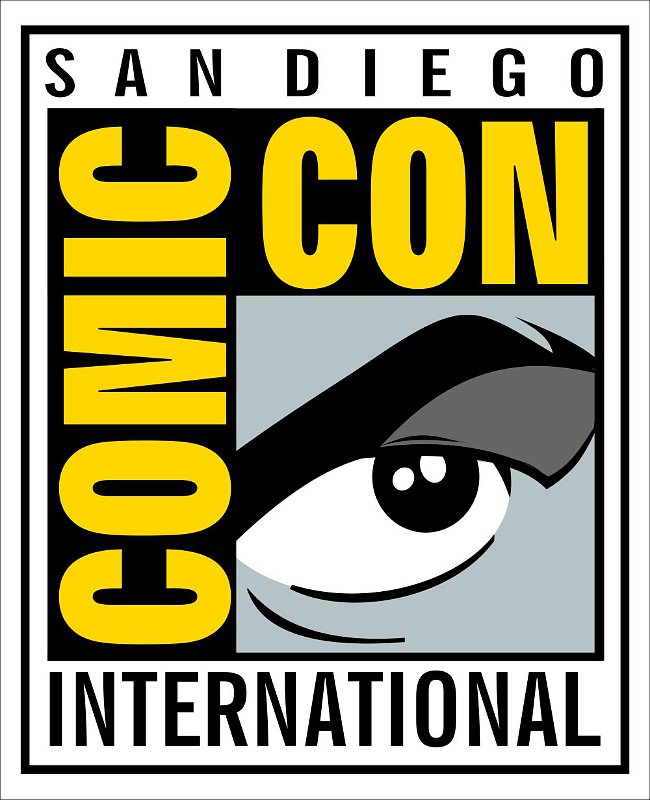

"There are also other characters that come and go (also owned by the Warner Bros. Discovery conglomerate media company)."
Huh. Is that just referring to other characters from the show itself, or is this implying that the new season is going to have cameos from other WBD IPs